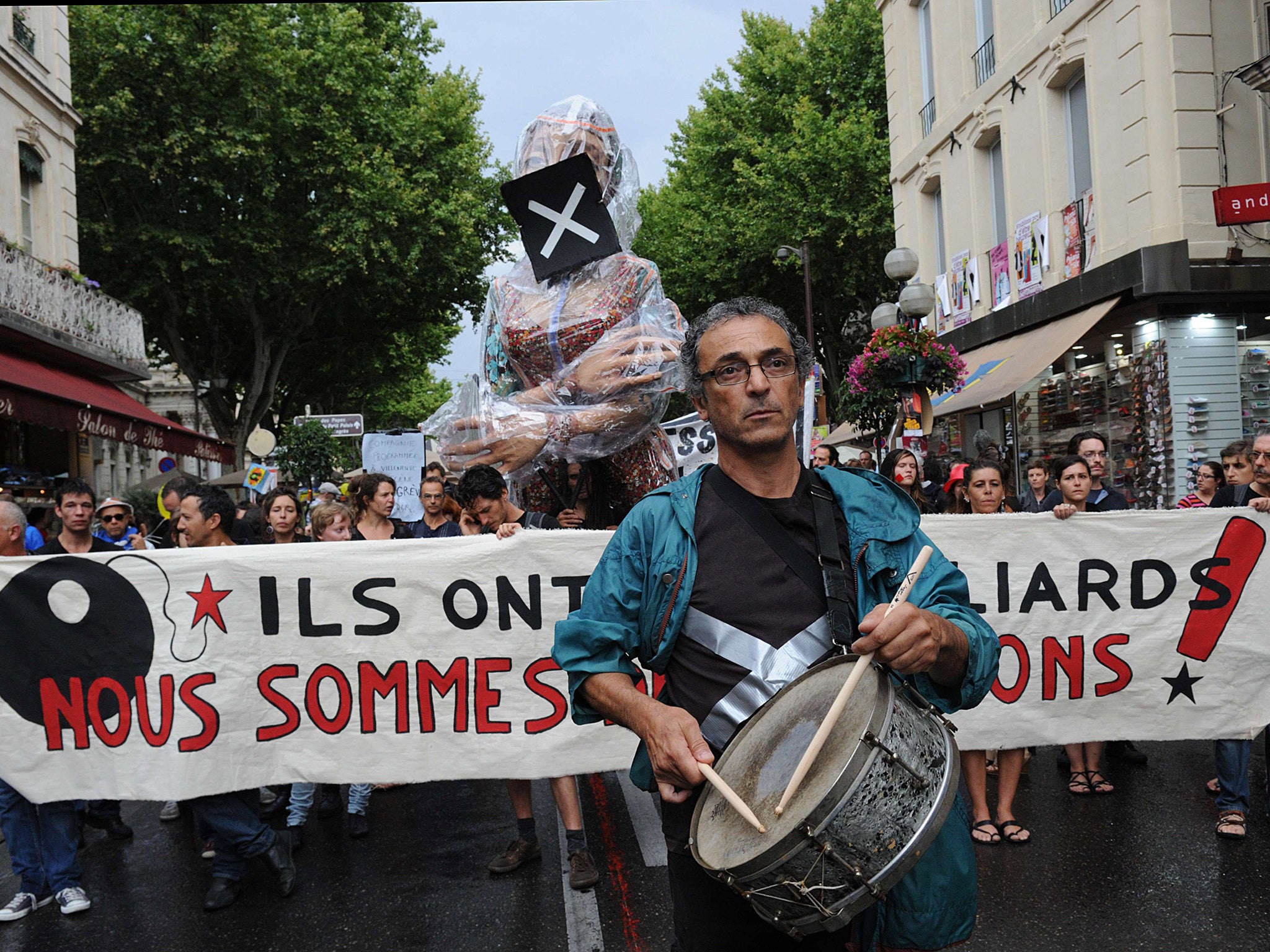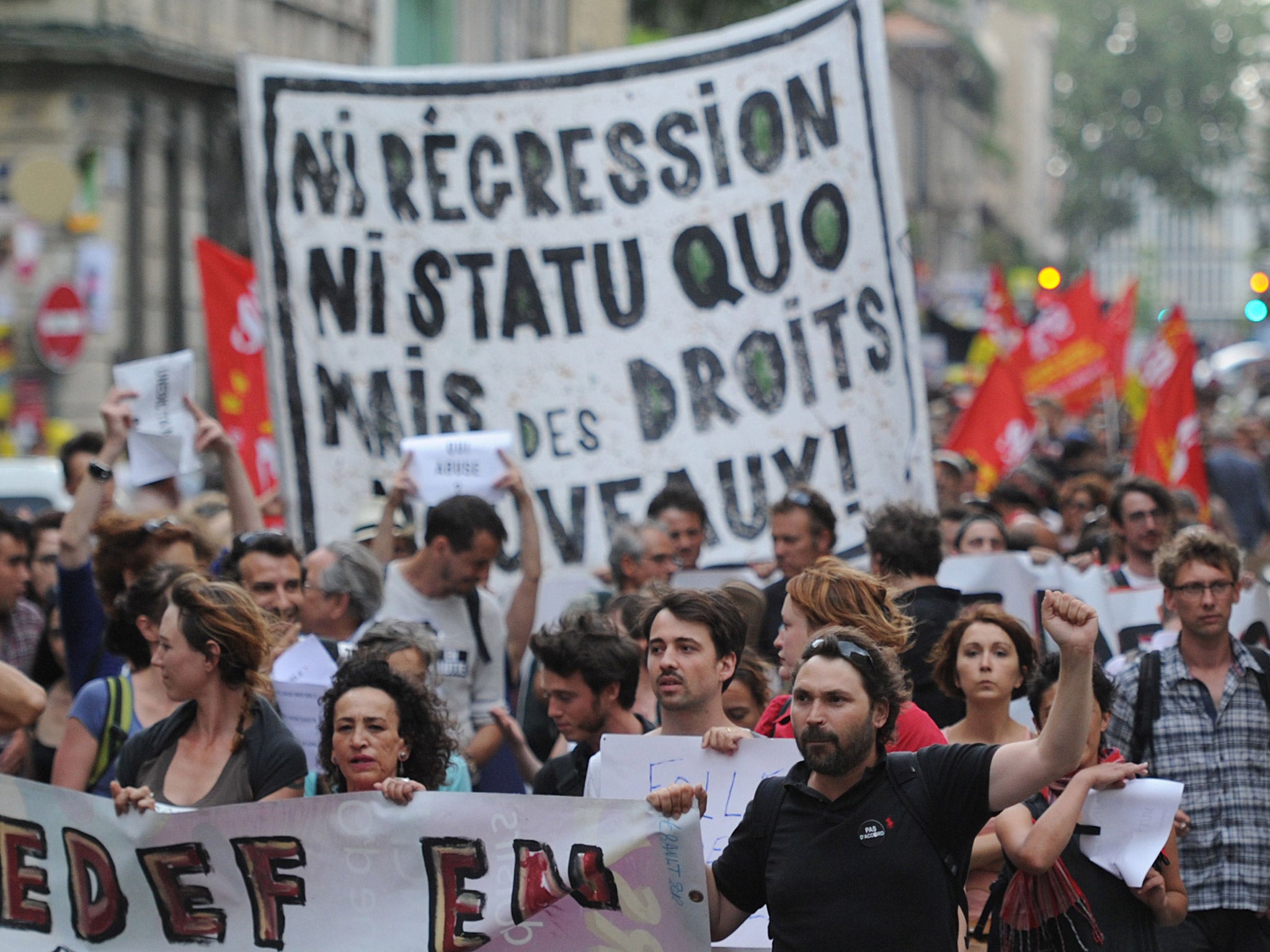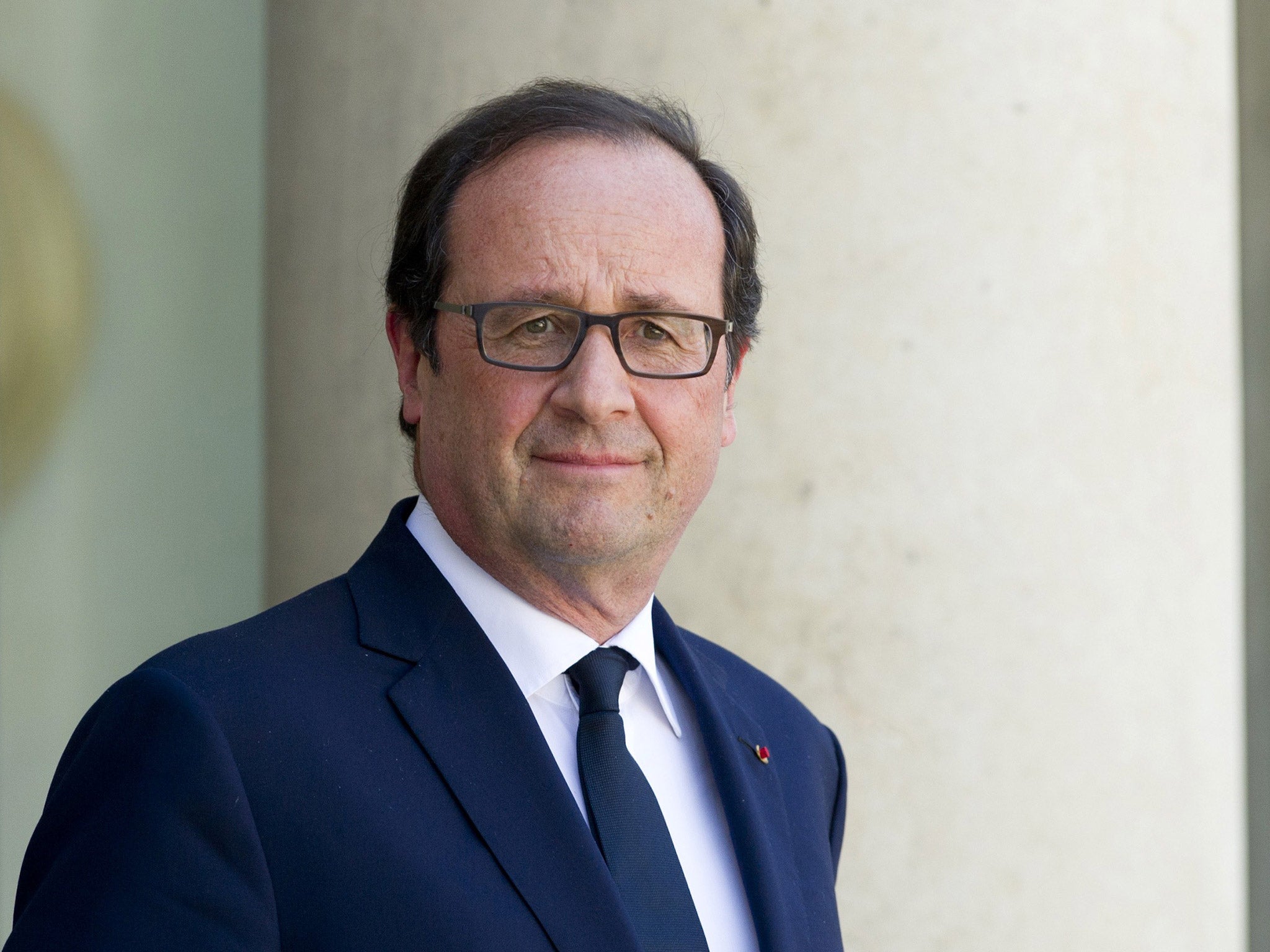The shows must not go on: now French arts workers strike
Opening performances of the Avignon theatre festival cancelled as actors and technicians walk out

The Scottish play is not on the programme but a Macbeth-like curse hangs over France's prestigious Avignon theatre festival this year.
Coup Fatal (Fatal Blow), a musical with an oddly premonitory name, was one of the two main performances cancelled on Friday after striking actors and technicians decided to target the festival's opening night. The other was Heinrich von Kleist's tragedy The Prince of Homburg, whose Italian production had been keenly awaited by the festival's 128,000 spectators and was to have been staged in the courtyard of the imposing medieval papal palace.
The strikers also conspired with the weather which forced the cancellation of some open-air fringe events, which were affected by violent storms in the Avignon area. Performers with the 1,000 "off" events said yesterday that many visitors, including foreigners, were confused by the chaos.
Festival director Olivier Py, announcing the opening night cancellations at a news conference, expressed sympathy for the strikers as he said that €29,000 (£23,000) in box-office takings would be lost. "I am united. Yes, this is a legitimate fight," he said, appealing for "calm and dialogue".
Hundreds of striking artists, actors and technicians took to the streets of the southern French city in a silent march to publicise their battle over proposed changes to their unemployment benefits. One banner read: "They've got billions, there are millions of us".

A new scheme was announced in March after employers and some unions reached an agreement, but it failed to end months of strike action by the performers and technicians, known as "intermittents" in France because of the temporary nature of their work. They contend that they are being penalised by the plans for higher payroll taxes and a longer wait for unemployment benefits which kick in between jobs. They also say that some people earning less than €9,000 a year will be forced to leave the profession as a result.
However benefits for the 254,000 casual workers' are controversial, and have little public support because the benefits are twice the French average and said to represent a quarter of the annual funding deficit of €4bn.
Friday's cancellations were forced by the CGT branch of the entertainment workers' union, which voted to hold the national strike despite an earlier vote by 80 per cent of festival staff who had wanted the Avignon opening to go ahead. The Paris Opéra was forced to cancel a ballet and an opera, while a dance event in Montpellier was closed. A Rossini opera in Aix-en-Provence could not be staged. The right-wing newspaper Le Figaro yesterday accused the CGT of "sabotage".

The protracted strike action has turned the spotlight not only on divisions among the entertainment unions but on the Socialist government's handling of the conflict with the artists and technicians who have always resisted any benefit reforms. Some performers have said they feel betrayed by President François Hollande who has promised to "always defend culture".
Prime Minister Manuel Valls, who comes from an artistic family in Barcelona and is married to a violinist, has refused to scrap the March reform, but he appointed a mediator on 7 June. Culture Minister Aurélie Filippetti, who has said that "my role as a minister is to support" the strike, should instead be supporting her PM, Le Figaro said in its editorial. Ms Filippetti was not in Avignon for the festival opening but intends to go later this month.
France's oldest festival was forced to cancel activities in 2003 because of a similar dispute, and organisers are hoping that other disruptions planned by union members between now and 27 July, when the final curtain falls, will be kept to a minimum. The CGT union has already announced further strike action in Avignon tomorrow.
Join our commenting forum
Join thought-provoking conversations, follow other Independent readers and see their replies
Comments
Bookmark popover
Removed from bookmarks